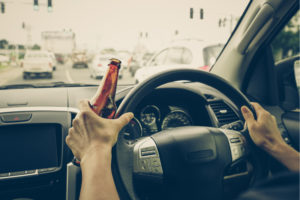Compensation in Alcohol-Related Rockford Car Crashes
 The decades-long crackdown against drunk drivers has basically failed to reduce the number of alcohol-related collisions in Illinois. Today, alcohol is a factor in almost a third of the fatal vehicle crashes in Rockford. In the 1980s, when DUI laws were weak and poorly enforced, the percentage was about the same.
The decades-long crackdown against drunk drivers has basically failed to reduce the number of alcohol-related collisions in Illinois. Today, alcohol is a factor in almost a third of the fatal vehicle crashes in Rockford. In the 1980s, when DUI laws were weak and poorly enforced, the percentage was about the same.
Utah recently took this campaign to a new level by lowering the BAC limit from .08 to .05. When states lowered their limits from .10 to .08 in the 1990s, the alcohol crash fatality rate dropped sharply for a while. This latest reduction may have the same effect, or it may just result in more arrests. No one is really sure.
Overall, Illinois law in this area is very harsh, both on the criminal and civil side. So, Rockford personal injury attorneys have a number of options when it comes to obtaining fair compensation for these victims. This compensation normally includes money for economic losses, such as medical bills, as well as noneconomic losses, such as pain and suffering.
First Party Liability: Direct Evidence
Most alcohol-related collisions involve a DUI arrest. As mentioned, Illinois DUI laws are very strict. Even if the tortfeasor (negligent driver) refuses to provide a chemical sample, or provides a sample that’s under the BAC limit, authorities can still arrest and prosecute the driver.
If that happens, the negligence per se doctrine usually applies. In Illinois, tortfeasors are generally responsible for damages as a matter of law if:
- They violate a safety law, like the DUI law, and
- That violation substantially causes injuries.
The civil jury decides all the facts in a civil case, including whether or not a driver was guilty of DUI. So, if the tortfeasor had not been found guilty or “beat” the criminal charges on a technicality, the negligence per se rule may still apply.
First Party Liability: Circumstantial Evidence
Most people must consume three or four drinks before they become legally intoxicated. But driving impairment begins with the first drink. So, even if the tortfeasor was not intoxicated, alcohol-related damages may still be available. In these situations, the victim/plaintiff can use circumstantial evidence of impairment, such as:
- Erratic driving,
- Bloodshot eyes,
- Odor of alcohol, and
- Slurred speech.
Typically, this evidence only establishes alcohol consumption. But since impairment begins so quickly and the burden of proof is so low in civil court, evidence of consumption is tantamount to evidence of impairment.
Many alcohol-related crashes are quite severe. Furthermore, impairment is evidence of behavioral negligence. Tortfeasors who drink and drive knowingly put other people at risk. For these reasons, damages in alcohol-related crashes tend to be higher than in some other types of collisions.
Third Party Liability
Sometimes, in severe crash and wrongful death cases, the tortfeasor does not have enough insurance coverage to provide fair compensation. Fortunately, Illinois has one of the broadest dram shop laws in the country. Victims do not need to establish an illegal sale to hold grocery stores, restaurants, and other commercial alcohol providers liable for damages. Instead, they need only establish that:
The patron caused a negligent or intentional injury, and
Alcohol that the establishment sold substantially caused the patron’s impairment.
Social hosts may also be vicariously liable for alcohol-related crash damages, under a theory like negligent undertaking.
Work with Savvy Attorneys
Alcohol-related crash victims have several legal options. For a free consultation with an experienced personal injury lawyer in Rockford, contact Fisk & Monteleone, Ltd. We do not charge upfront legal fees in negligence cases.
